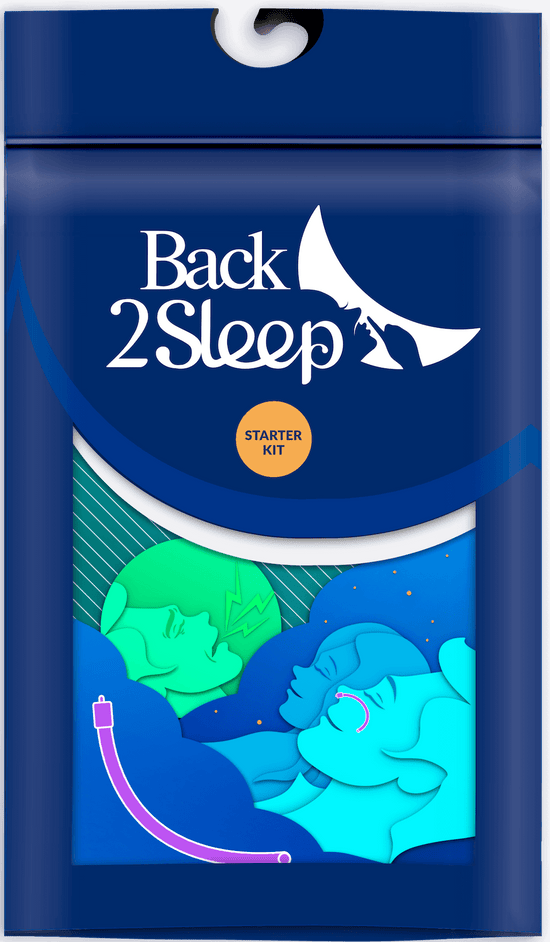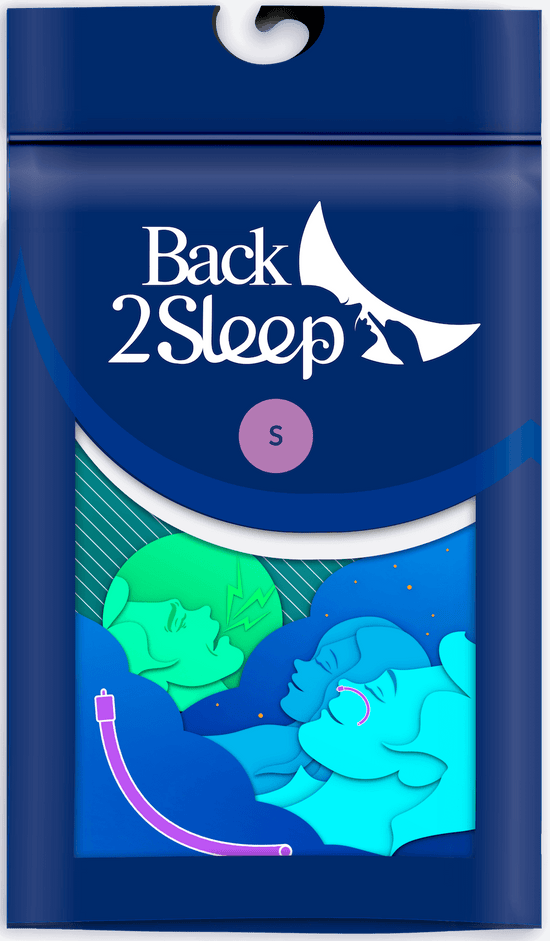Anti-Snoring Solution for
Sleep Apnea and Snoring
Our Medical Anti-Snoring Device
obtains 92% satisfaction
and proven results!
After 10 years of research and development, we present the Back2Sleep solution.

The sound of snoring can go up to 100 decibels (i.e., the sound of a drill!) It has an impact on social life and can affect the rhythm of sleep resulting in fatigue and the risk of accidents.
In more serious cases, snoring can hide a sleep apnea syndrome with severe consequences such as cardiovascular diseases.
“Understanding Snoring and How to Address It” by Professor Chabolle
Professor Chabolle is a world-renowned ENT (Ear, Nose, Throat) specialist. He explains the causes of snoring and sleep apnea, as well as the mechanism of action of Back2Sleep. The explanation is in French with English subtitles.
-

Insertion? Easy!
10 seconds is enough -

57,000 Pharmacies
Partners Worldwide! -

1 million
tubes
sold
Even more reasons
to choose our Back2Sleep solution
Back2Sleep,
the answer to all your
Sleep troubles
-

First use?
Order our Starter Kit!Learn more about the Starter Kit4 different lengths to find the one that will be effective and comfortable
-

Already a user?
Order our regular solution!Discover our subscription solutionsSimple, efficient and economical, each box is planned for one month of use!
Scientifically proven results!
The therapeutic effect of Back2Sleep (formerly nastent®) on the apnea-hypopnea index before treatment and during treatment on 6 patients for 1 month.
The decrease of the apnea-hypopnea score is confirmed when improving the oxygen saturation index score.













